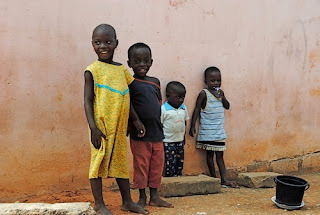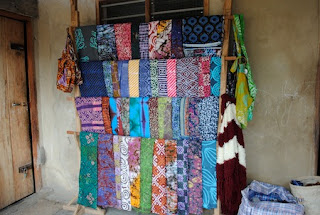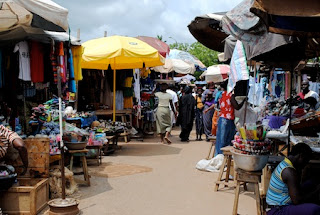West African Batik came to the region by the way of Dutch traders through ancient trans-Saharan routes and the region has since adopted the technique as its own. Wax printing was incorporated into indigenous groups traditional textiles, and the patterns came to be forms of social expression conveying political and religious beliefs, marital status, and even moods.
Working from her home with the help of five other women, Chantal and Aklala Batik have established a successful enterprise based on the beauty and uniqueness of her handmade batik. Chantal’s incorporation of modern trends and styles while still preserving traditional waxing and dying techniques gives her products a distinctive aesthetic appealing to both locals and tourists alike.
The batik process begins with a large piece of 100% white cotton sourced from Ghana, as the quality of the fabric found there is superior to that of Togo. Some patterns and designs require the cloth to be dyed a base color before it can be printed on.
The next step is for the cloth to be coated with a layer of wax in various patterns by using a wooden stamp called a tampon. Chantal has a large variety of tampons that she herself designs. In this step artisan creativity really comes into play, as different ways to use the same stamp or a combination of different stamps can create an assortment of intricate designs and motifs.
The stamped cloth is then immersed into a reactive dye, allowing the cloth to absorb a color while leaving the waxed parts unchanged. The fabric is then laid out to dry and allow the color to set in. For more complex designs, other areas of the fabric may be waxed again and then plunged into a different dye to create multiple colors.
After the color has set it goes through an extremely hot wash to remove the wax and then hung out on the line to dry in the sun. Once dry, it is ironed to fully rid of any leftover wax.
The finished product is then cut and sewn to construct a range of her unique products from bags, apparel, stuffed animals, necklaces, journals, aprons, to laptop and cosmetic cases! Recycled batik scraps are also used for product accents and jewelry. I'm going to be making my own batik next week and I'm going to make Emily take pictures of me doing it so results to come!









































